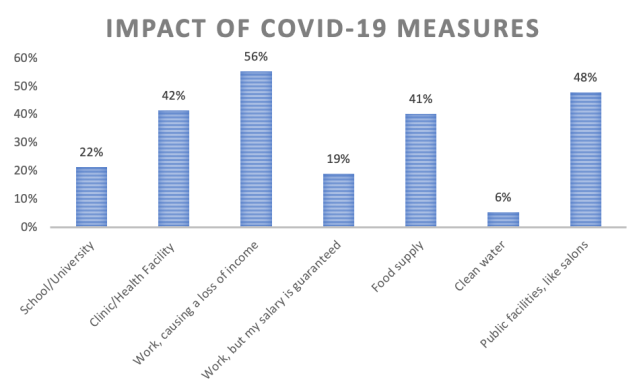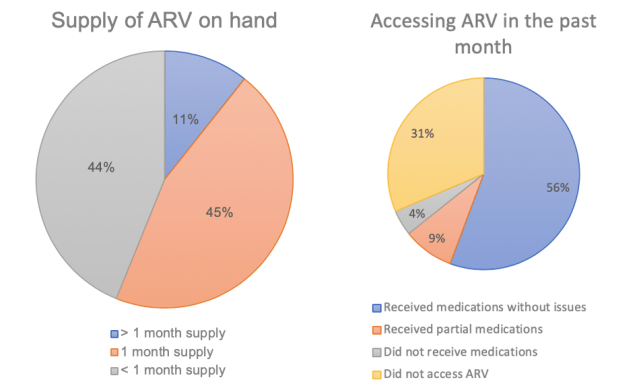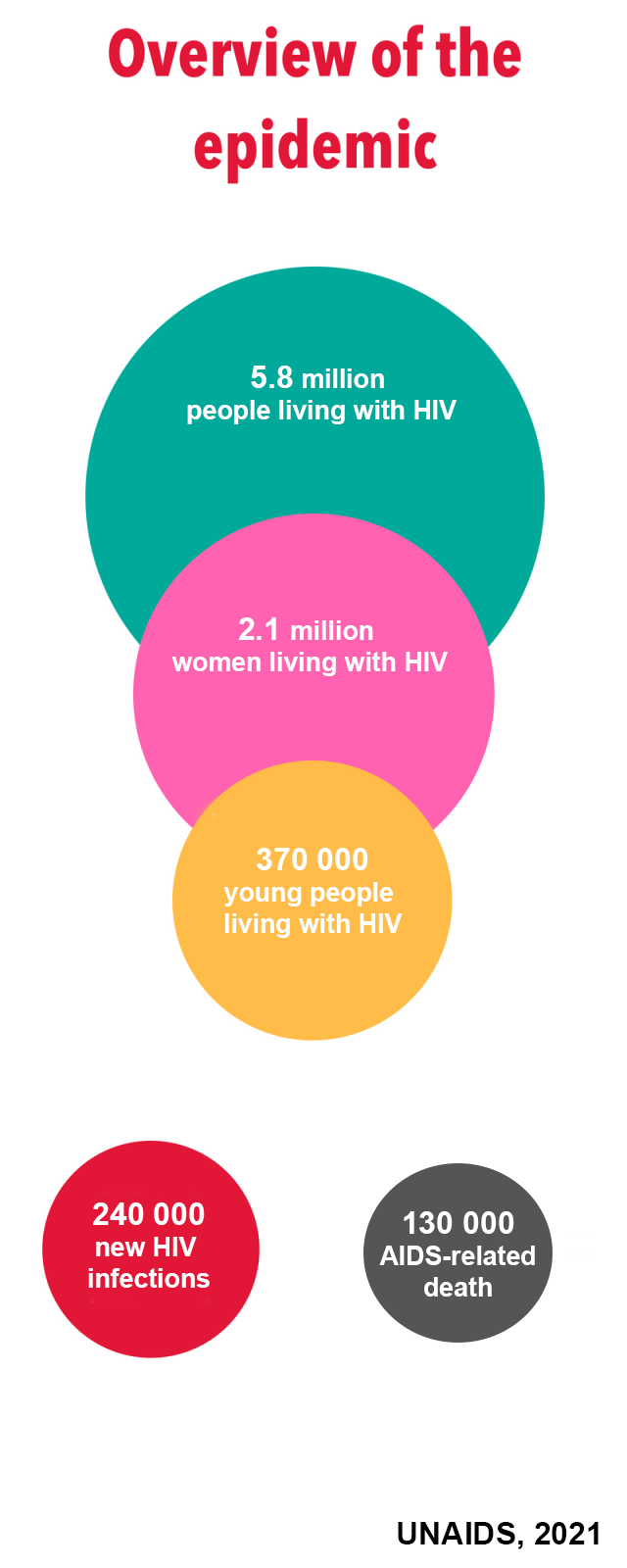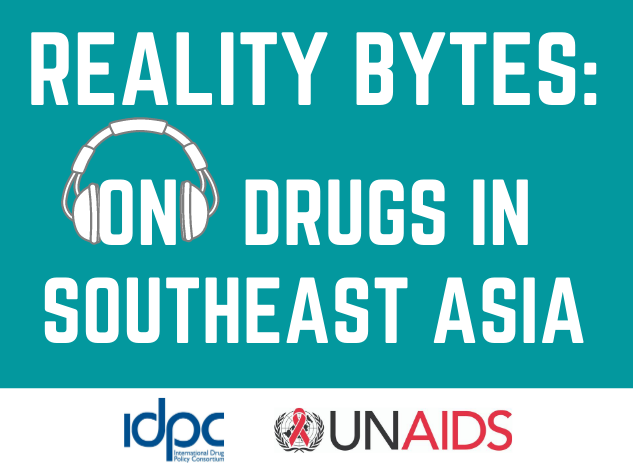Report: Rapid Survey on the Impact of COVID-19 to Young Key Populations and Young People Living with HIV in Indonesia
Introduction
COVID-19 is a serious pandemic, unprecedented in our lifetime. On 13 April 2020, Inti Muda and UNAIDS conducted a survey to assess the needs of young key populations (YKP) and young people living with HIV (PLHIV) and the possibility of severe disruption to HIV prevention, testing, treatment and other related services during COVID-19 outbreak. The survey, initiated at the regional level by the Interagency Task Team (IATT) on Young Key Populations (YKPs) in Asia and the Pacific, assesses information needs, medication on hand, and ability to access HIV services and support networks among YKP and young PLHIV.
As the YKP and young PLHIV group in Indonesia is relatively large and diverse, Inti Muda took the lead to localize the survey to Indonesian context through translation, modifications of questions, and distribution through local channels.
According to a survey of PLHIV conducted by the Indonesian Positive Network with UNAIDS Indonesia support, the COVID-19 pandemic has greatly affected many people’s lives. Concerns include: socio-economic concerns (more than 20% have lost their incomes and cannot sustain food needs), medication on hand (47.6% have less than 1 month’s supply of ARV), and concerns surrounding their own health and their family’s health.
This YKP survey aims to complement the results of the PLHIV survey as well as to help support local solutions, particularly for vulnerable YKP and young PLHIV groups in Indonesia. With some donors open for reprogramming funds, this survey may be used as advocacy tools and evidence to show the real needs of the young people in need.
Methodology
After the translation and modification of the YKP survey from English to Bahasa Indonesia, they survey was uploaded of Google Forms, where each response could be closely monitored and quantified.
The YKP survey was opened for responses starting on 13 April 2020 and closed after 1 week (7 days) on 20 April 2020 after reaching 200 responses. The survey invitation was disseminated through various social media used by the YKP networks, including Whatsapp (and Whatsapp groups), Instagram and Facebook.
Analysis of survey findings
They respondents of the survey are a combination of young key populations and young people living with HIV. Following one week of collecting responses, the survey received 200 responses, with 122 being young PLHIV on ARV treatment.
Out of the 200 total respondents of the survey, 45.5% identified as MSM, 8% as transgender women, 5.5% as sex workers, 1% as PWUD, and 27% as PLHIV.
This analysis will highlight the most urgent needs that were identified through the survey. Overall, the survey found that the most urgent needs are socio-economic needs, security of ARV treatment, and mental support. The survey also found that most YKP and young PLHIV surveyed are able to practice the necessary COVID-19 preventive measures and their information needs are mostly fulfilled.
Socio-economic needs
Similar with most countries in the world, the Government of Indonesia has also put measures into place to curb the transmission of COVID-19. The measures restrict movements of people and has left many to be laid off from work or unable to continue their businesses. This is also the case with YKP and young PLHIV in Indonesia.
According to the survey, 56% of the respondents have lost their incomes and/or their jobs. Considering that this survey was taken one month into the COVID-19 quarantine measures, the numbers may have increased by time.

Losing one’s work is definitely a difficult situation, particularly during the pandemic where most employers are likely not recruiting new staffs. It is no surprise that loss of income is the third biggest concern of the respondents (55%).
The socio-economic impacts of COVID-19 measures does not only affect those who lost their jobs. The survey found that 81,5% mention that COVID-19 has affected their capacity to sustain costs for themselves and their families, with reasons such as: experiencing a loss in their business due to lack of customers, laid off from work, and inability to do sex work or work on the streets.
Accessing HIV services, particularly ARV treatment
With 122 of the respondents being on ARV treatment, it is notable that security of ARV stock and availability is found to be an urgent need. Currently, there are some critical issues surrounding ARV stock. While WHO Guidelines call for multi-month dispensing which is needed now more than ever, Indonesia has not been able to put it into practice. Due to issues of procurement and distribution, many services have experienced ARV stockouts. While this issue is being addressed by CSOs and other national stakeholders, the situation has already impacted many people. This concern is reflected in the results of the survey.

It is concerning that 44% of young PLHIV surveyed have less than 1-month supply of ARV. Accessing HIV services to receive ARV is also worrisome for many as most people are avoiding going to the clinics where they fear contracting COVID-19. As mentioned earlier, the PLHIV survey by Indonesian Positive Network had a similar finding, with 47.6% (out of 1,000 PLHIV surveyed) have less than 1 month’s supply of ARV.
The survey also found that while 55,7% were able to access ARV without any trouble in the past month, 8,6% only received partial medications and 4,3% were not able to receive medication.
In order for them to remain on treatment, it is crucial to find a way to receive medications safely. Besides this, counselling and peer support are also perceived to be a factor into staying on treatment, so it is good that 78% are able to get in contact with peer supports and counsellors to find support.
Besides going to services for ARV, some also mention the difficulty to access VCT services as some places either limit the opening hours, or close it altogether. This would definitely be affecting the work of outreach workers who rely on VCT services for their work.
Mental health support
With the numerous challenges and difficulties faced by YKP and young PLHIV during this time, more than half of the respondents explain that they are “very worried” about COVID-19. In fact, most of the respondents show concern at varying levels.

The main concerns that the respondents have are concerns about their own health, their family’s health, and loss of income. The graph above shows that the other concerns are also relatively high and correspond to the findings earlier, such as concerns about medications, loss of income and work.
Other findings
Besides the above findings showing that there are urgent needs for YKPs and young PLHIV in Indonesia, the survey also found that most of them are able to practice COVID-19 preventive measures and have access to them: including handwashing and hand rub, keeping safe distances, staying home, wearing masks, etc.
Most of their information needs are also fulfilled, with social media, TV and Ministry of Health website as the main sources. In regard to gaps of information, more than 70% call for an increase of information on special protection for PLHIV/KPs as well as information on COVID-19 testing and treatment.
Recommendations
Social Protection
- Ensure provision of food and other social protection services including shelter for vulnerable populations;
- Explore and make use of reprogramming opportunities by donors to support needs of YKP and young PLHIV in need of economic support;
- Explore ways to access government stimulus packages or provision of food supplies for vulnerable groups.
Access to HIV services and ARV medication
- Explore possibilities to work with local health facilities to lessen frequency of visiting health facilities in times of COVID-19, including through multi-month dispensing;
- Advocate with other stakeholders the security of ARV stock in Indonesia;
- Ensure the implementation of Ministry of Health’s Protocol of HIV/AIDS Services Delivery during COVID-19 Pandemic.
Mental health support
- Ensure ability to access counsellors and peer supports virtually;
- Supporting the expansion of hotline counselling services on easily accessible platforms, such as Whatsapp.
Conclusion
The COVID-19 pandemic has greatly affected the lives of YKPs and young PLHIV in Indonesia. The measures have caused impacts to the ability to sustain their livelihood and ability to access HIV services, and the pandemic itself has also affected people’s mental health due to many valid and real concerns.
The results from this survey are quite similar to results from PLHIV survey by Indonesian Positive Network. The main issues in particular, accessing ARV and socio-economic needs, are experiences are not exclusive to young people only, but it is a part of the overall experience of PLHIV and KPs currently faced in Indonesia.
Through this survey, several recommendations were identified to address the most urgent issues. As part of the advocacy on ARV security in Indonesia, Inti Muda has presented the survey results to the Technical Working Group Taskforce on HIV and has been included into the HIV-COVID19 Taskforce group in Indonesia.
To further this study, it would be beneficial to have a comparative look between the results in Indonesia with the results at the regional level. With that, additional support and advocacy could be received at the regional level.
 UNAIDS Asia-Pacific
UNAIDS Asia-Pacific 


